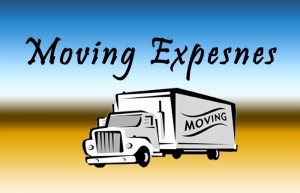You can qualify for eligible moving expenses if your new home is at least 40 kilometres (by the shortest usual public route) closer to the new place of work, business or school as compared to the old home or business.
Who Can Claim?
- An Employee
- Self employed
- Full time Student
If you have moved and established a new home to work or run a business at a new location you can deduct eligible moving expenses from the employment or self-employment income that you earned at your new location. You cannot deduct your moving expenses from any other type of income, such as investment income or employment insurance benefits, even if you received this income at the new location.
You can claim eligible moving expenses if you have moved to take courses as a student in full-time attendance enrolled in a post-secondary program at a university, college or other educational institution that offers courses at a post-secondary school level. However, you can only deduct these expenses from the part of your scholarships, fellowships, bursaries, certain prizes, and research grants that is required to be included in your income.
You are considered to be a full-time student if you regularly attend a college, university, or other educational institution in a program at a post-secondary school level (whether in Canada or not); and during a particular semester, you are taking at least 60% of the usual course load for the program in which you are enrolled.
Unused moving expenses available to carry forward to a future year
Unused net moving expenses which are more than net income can be carry forward to the following year. If your net moving expenses that you paid in the year of the move are more than the net eligible income earned at the new work location in that same year, you can carry forward and deduct the unused part of those expenses from your employment or self-employment income earned at the new work location in the following years.
Expenses you paid in a year after you moved
Certain expenses can be claimed in a year after the year of your move, you can claim them on your return for the year you paid them against employment or self-employment income earned at the new work location.
For instance expenses on selling of your old residence after the year of your move. In this situation, CRA may ask you to submit Form T1-M with the receipts and explain the delay in selling your home.
Carrying Back Moving Expenses
Moving expenses cannot be carried back to a previous year of a year in which they incurred. For example, if you paid moving expenses in 2015 for a move that occurred in 2014, you cannot claim the expenses paid in 2015 on your 2014 return, even if you earned employment or self-employment income at the new location in 2014.
Eligible moving expenses
- Eligible moving expenses, including legal fees.
- Transportation and storage costs(such as packing, hauling, movers, in-transit storage, and insurance) for household effects, including items such as boats and trailers.
- Travel expenses, including vehicle expenses, meals, and accommodation, to move you and members of your household to your new residence.
- Temporary living expenses for up to a maximum of 15 days for meals and temporary accommodation near the old and the new residence for you and members of your household.
- Cost of cancelling a lease for your old residence, except any rental payment for the period during which you occupied the residence.
- Incidental costs related to your move which include the following:
- Changing your address on legal documents;
- Replacing driving licences and non-commercial vehicle permits (not including insurance); and
- Utility hook-ups and disconnections.
- Cost to maintain your old residence (maximum of $5,000)when it was vacant after you moved, and during a period when reasonable efforts were made to sell the home. It includes Interest; Property taxes; Insurance premiums; and Cost of heating and utilities expenses.
- Cost of selling your old residence, including advertising, notary or legal fees, real estate commission, and mortgage penalty when the mortgage is paid off before maturity.
- Cost of purchasing your new residence if you or your spouse or common-law partner sold your old residence as a result of your move.
- Expenses that are not considered eligible moving expenses.
- Expenses for work done to make your old residence more saleable.
- Any loss from the sale of your home.
- Travel expenses for house-hunting trips before you move.
- The value of items movers refused to take, such as plants, frozen food, ammunition, paint, and cleaning products.
- Travel expenses for job hunting in another city.
- Expenses to clean or repair a rented residence to meet the landlord’s standards.
- Expenses to replace personal-use items such as tool-sheds, firewood, drapes, and carpets.
- Mail-forwarding costs (such as with Canada Post).
- Costs of transformers or adapters for household appliances.
- Costs incurred in the sale of your old residence if you delayed selling for investment purposes or until the real estate market improved.
- Mortgage default insurance.
Expenses you cannot deduct
Generally, you cannot deduct the cost of moving a mobile home. However, if you have personal effects in a mobile home when it is moved, you can deduct the amount it would have cost to move those personal effects separately.
Situations where your moving expenses are not allowable:
- Your new home is not at least 40 kilometers(by the shortest usual public route) closer to your new place of work or educational institution;
- Expenses for which you were reimbursed by your employer and that are not included in your income; and
- Expenses for which you do not have the required supporting documentation.
Keep all your receipts and supporting documents for your claim.

